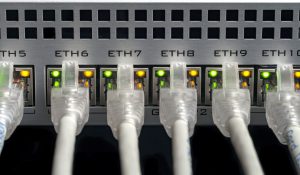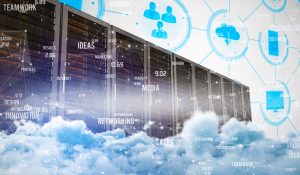
by T. N. Vijaykumar on Apr 23, 2018 | Tags: Conference, Opinion
We need a rubric for reviews to ensure our review process is fair.
Read more...

by Mark Silberstein on Apr 16, 2018 | Tags: Accelerators, Data center, FPGA, Networking, SmartNICs, Systems
Programmable network controllers, SmartNICs, are an old concept, yet today they are seeing renewed interest and growing adoption in data centers and HPC systems. This blog post discusses the trends in modern computer networks that drive the dramatic increase of...
Read more...

by Mark D. Hill on Apr 12, 2018 | Tags: Awards
ACM recently announced that computer scientists John Hennessy and David Patterson have shared the 2017 ACM Turing Award. This blog post (a) gives a story–necessarily oversimplified–for how Hennessy & Patterson’s work fundamentally changed and accelerated computer architecture work and (b) includes Hennessy and Patterson’s Turing Lecture abstract.
Read more...

by Doug Burger on Apr 10, 2018 | Tags: People
Burton Smith, a giant in the field of computer architecture, passed away on April 2, 2018. His friends and colleagues remember him both as a special intellect, whose work underlies much of the computing that we use today, and as a special person, whose warmth,...
Read more...

by Adrian Sampson on Apr 5, 2018 | Tags: Conference
Colonial Williamsburg is a “living museum.” Its pseudo-historical buildings mostly date the the 1930s, when history buffs imagined what the early settlement might have looked like and set their guesses into literal stone. The revivalists demolished hundreds of...
Read more...

by Tilman Wolf on Apr 2, 2018 | Tags: Distributed Systems, Networking, Systems
In this post, I argue that the traditional separation of computation and communication is not representative of the reality of current distributed systems. Instead, a more continuous perspective of computation and communication may be of value. This change requires...
Read more...

by Steve Swanson on Mar 27, 2018 | Tags: Awards, Memory, non-volatile, Persistent
Earlier this month, the 9th annual Non-Volatile Memories Workshop took place on the UC San Diego campus. This year, for the first time, the organizing committee created three awards to recognize some of the best work (new and old) in the field of non-volatile memory...
Read more...

by Sarita Adve, Michael Gschwind, Margaret Martonosi, Kathryn McKinley on Mar 24, 2018 | Tags: Discrimination, Diversity, Harassment
We are delighted to announce that SIGMICRO will join SIGARCH on the recently announced CARES program. CARES will now be a joint committee of SIGMICRO and SIGARCH. This is the first joint committee of the two organizations in recent times. We look forward to our two...
Read more...

by Aasheesh Kolli on Mar 19, 2018 | Tags: Conference
An overview of the 24th International Symposium on High-Performance Computer Architecure held in VIenna, Austria.
Read more...

by Simha Sethumadhavan on Mar 12, 2018 | Tags: Opinion, Security
Works that describe defenses are often harder to publish than papers that demonstrate attacks. This blog post provides some insight on why this may be the case.
Read more...










